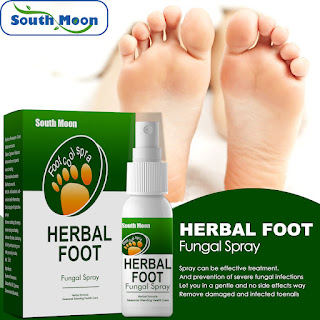Best Foot Powders for Preventing Nail Fungus
Nail fungus, or onychomycosis, is a common and persistent fungal infection affecting the toenails and, less frequently, the fingernails. Characterized by discoloration, thickening, crumbling, and separation of the nail from the nail bed, it can be both unsightly and painful. While effective treatments exist, prevention is paramount. Maintaining dry, clean feet is crucial in mitigating the risk of fungal growth, and foot powders play a significant role in this preventative strategy. This article explores the characteristics of effective foot powders and reviews several top contenders for preventing nail fungus.
Understanding the Role of Foot Powders in Fungal Prevention
The primary mechanism by which foot powders help prevent nail fungus is by absorbing excess moisture. Fungi thrive in damp, dark environments. The feet, particularly within shoes, often create an ideal breeding ground due to perspiration and limited air circulation. By absorbing this moisture, foot powders significantly reduce the humidity, creating an inhospitable environment for fungal spores to germinate and proliferate. This preventative effect is particularly important for individuals at increased risk of onychomycosis, including those with:
- Hyperhidrosis (excessive sweating)
- Compromised immune systems
- Diabetes
- Athletes who frequently wear enclosed footwear
- Individuals who regularly walk barefoot in public areas like locker rooms or swimming pools
Beyond moisture absorption, some foot powders contain additional ingredients that contribute to their antifungal properties. These ingredients can include:
- Antimicrobial agents: Certain compounds, such as tea tree oil or undecylenic acid, possess inherent antimicrobial properties, inhibiting the growth of fungi and bacteria.
- Absorbent powders: Talc, cornstarch, and zinc oxide are common absorbent powders that draw moisture away from the skin and nails.
- Medicated ingredients: Some foot powders incorporate antifungal medications, such as tolnaftate or clotrimazole, providing a more direct approach to fungal prevention.
Choosing the Right Foot Powder for Fungal Prevention
Selecting an effective foot powder requires careful consideration of several factors. The key characteristics to look for include:
Moisture Absorption Capacity
The powder's ability to absorb moisture is its most crucial function. Look for powders that explicitly mention high absorbency or are formulated with highly absorbent ingredients like cornstarch or zinc oxide. Avoid powders that leave a sticky or clammy residue, as this indicates poor absorbency.
Antimicrobial Properties
While not all foot powders contain antimicrobial agents, the presence of such ingredients can enhance their preventative effect. Tea tree oil, undecylenic acid, and other naturally occurring antimicrobial substances are known for their antifungal properties. Check the ingredient list to identify these components.
Skin Compatibility
Ensure the foot powder is formulated for sensitive skin. Some powders contain fragrances or other irritants that can exacerbate skin conditions or cause allergic reactions. Opt for unscented or hypoallergenic options if you have sensitive skin.
Ease of Application
The powder should be easy to apply and distribute evenly across the feet and between the toes. A finely milled powder will generally be easier to apply than a coarse one.
Top Foot Powders for Preventing Nail Fungus
While this is not an exhaustive list, the following foot powders are frequently recommended for their efficacy in maintaining foot hygiene and preventing fungal infections:
Ammens Medicated Powder
Ammens Medicated Powder is a well-established brand known for its ability to absorb moisture and combat odor. While not explicitly marketed as an antifungal, its absorbent properties and inclusion of antimicrobial ingredients contribute to its effectiveness in creating a less hospitable environment for fungal growth.
Gold Bond Medicated Foot Powder
Gold Bond Medicated Foot Powder is another popular choice, offering a combination of moisture absorption and antifungal properties. The inclusion of medicated ingredients can provide additional protection against fungal infections. However, individual responses to specific medicated ingredients can vary.
Tinactin Antifungal Foot Powder
Tinactin Antifungal Foot Powder contains tolnaftate, a broad-spectrum antifungal agent. This active ingredient directly targets fungi, making it a highly effective choice for individuals with a history of nail fungus or those at high risk. It's crucial to follow the product instructions carefully.
Lotrimin Ultra Foot Powder
Lotrimin Ultra Foot Powder contains clotrimazole, another potent antifungal agent effective against various dermatophytes and yeasts that cause fungal infections. Similar to Tinactin, its direct antifungal action adds a strong layer of prevention. This option is particularly suitable for those with existing fungal issues.
Beyond Foot Powder: A Holistic Approach to Fungal Prevention
While foot powders are a valuable tool in preventing nail fungus, they are most effective when integrated into a comprehensive foot hygiene regimen. This includes:
- Washing feet daily: Use lukewarm water and soap, paying careful attention to the areas between the toes.
- Thorough drying: Ensure feet are completely dry after washing, particularly between the toes.
- Wearing breathable footwear: Avoid tight-fitting shoes and opt for breathable materials like cotton or leather.
- Changing socks regularly: Wear clean socks daily, especially if you're sweating.
- Avoiding barefoot walking in public places: This reduces exposure to fungal spores in environments like locker rooms and showers.
- Regular nail trimming: Keep toenails trimmed straight across to prevent ingrown nails, which can increase the risk of infection.
In conclusion, the selection and consistent use of a high-quality foot powder, coupled with diligent foot hygiene practices, significantly contribute to the prevention of nail fungus. Choosing a powder with high absorbency and potential antimicrobial properties can further enhance its protective capabilities. If you suspect you have a nail fungus infection, consult a dermatologist or podiatrist for proper diagnosis and treatment.





0 comments:
Post a Comment
Note: Only a member of this blog may post a comment.